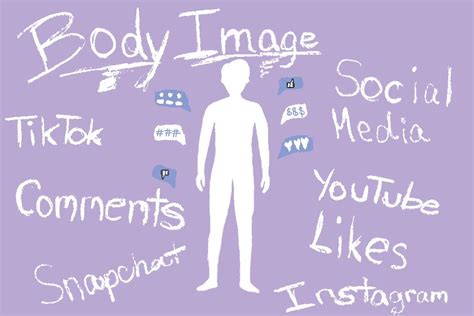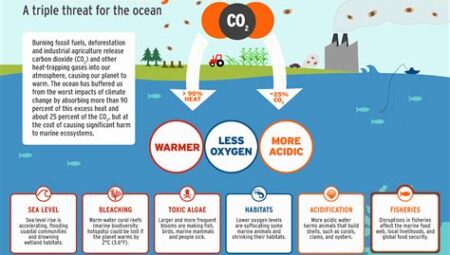In today’s digital age, media plays a significant role in shaping our perceptions of beauty and body image. The portrayal of ‘ideal’ body types in movies, advertisements, and social media creates unrealistic beauty standards that can have detrimental effects on our self-esteem. Constant exposure to these unattainable standards often leads to negative self-perception and comparison, resulting in body dissatisfaction and low self-esteem. The psychological consequences of media influence on body image and mental health are profound, affecting individuals of all ages. However, by understanding the impact of media on our self-image and developing media literacy, we can take steps towards improving our self-esteem. This blog post will delve into the influence of media on body image and self-esteem, exploring the role of social media in body image issues and emphasizing the importance of cultivating positive self-esteem in a media-driven society.
Table of Contents
Media portrayal of ‘ideal’ body types
The media’s portrayal of ‘ideal’ body types has a significant impact on individuals’ body image and self-esteem. Through various forms of media, such as advertisements, television shows, and social media, certain body types are glorified and portrayed as the standard of beauty. This constant exposure to a narrow and unrealistic standard can lead to feelings of inadequacy and dissatisfaction with one’s own body.
Furthermore, the media’s idealization of certain body types can contribute to the development of disordered eating behaviors and body dysmorphia. When individuals are bombarded with images of ‘perfect’ bodies, they may feel pressured to conform to these unrealistic standards, leading to negative self-image and mental health issues.
It is important to recognize the impact of media portrayal of ‘ideal’ body types on individuals’ perceptions of themselves and their bodies. By promoting diverse and inclusive representations of beauty, the media can help alleviate the negative effects of unrealistic beauty standards and promote self-acceptance and positive self-esteem.
In conclusion, the media’s portrayal of ‘ideal’ body types plays a significant role in shaping individuals’ body image and self-image. It is crucial for the media to reassess its representation of beauty and promote diversity and inclusivity to combat the negative effects of unrealistic beauty standards.
Effects of unrealistic beauty standards
Unrealistic beauty standards have a detrimental impact on individuals, perpetuating a culture of comparison and negative self-perception. The constant bombardment of idealized images in the media contributes to feelings of inadequacy and dissatisfaction with one’s own appearance. This can lead to a range of mental health issues, including anxiety, depression, and eating disorders.
Moreover, the pressure to conform to these unattainable beauty ideals can result in low self-esteem, as individuals may feel they are unable to measure up to the unrealistic expectations set by society. This can create a cycle of negative self-perception, as individuals internalize the messaging that they are not good enough unless they fit a specific mold.
Additionally, the effects of unrealistic beauty standards are not limited to psychological consequences. They can also have a tangible impact on physical health, as individuals may engage in harmful behaviors in an attempt to achieve the unattainable standards set by the media. This can include extreme dieting, excessive exercise, and cosmetic alterations, all of which can have damaging effects on the body.
Overall, the effects of unrealistic beauty standards are far-reaching and can permeate every aspect of an individual’s life. It is crucial to recognize the impact of these idealized portrayals and work towards fostering a more inclusive and realistic representation of beauty in the media.
Comparison and negative self-perception
In today’s society, the constant exposure to unrealistic beauty standards through media portrayal has led to an increase in comparison and negative self-perception among individuals. The prevalence of social media platforms and advertising has resulted in a never-ending stream of idealized images and messages that present an unattainable standard of beauty. This constant bombardment of unrealistic representations has created a culture of comparison, where individuals often measure themselves against these unattainable standards.
As a result, many individuals develop negative self-perception as they believe they fall short of the idealized images they are exposed to. This constant comparison to unattainable beauty standards can lead to feelings of inadequacy, low self-esteem, and even body dissatisfaction. The negative self-perception cultivated through comparison can have detrimental effects on an individual’s mental health and overall well-being.
It is crucial to recognize the damaging impact of constant comparison to unrealistic beauty standards and work towards cultivating a more positive self-perception. By promoting media literacy and encouraging a critical understanding of the media’s influence on body image and self-esteem, individuals can begin to challenge unrealistic beauty standards and develop a more positive self-perception.
Ultimately, addressing the issue of comparison and negative self-perception requires a collective effort to shift societal attitudes towards beauty and promote a more diverse and inclusive representation of individuals in the media. By challenging unrealistic beauty standards and promoting self-acceptance, individuals can work towards improving their self-perception and overall well-being in a media-driven society.
Media’s impact on body dissatisfaction
The media plays a significant role in shaping societal ideals of beauty and body image. From the countless images of airbrushed models in magazines to the heavily filtered photos on social media, it’s no wonder that many individuals experience body dissatisfaction as a result of this constant exposure. The prevalence of these unrealistic beauty standards in the media can lead to feelings of inadequacy and low self-esteem in those who do not fit the mold.
Moreover, the media’s portrayal of beauty often focuses on a narrow definition of ideal body types, perpetuating the belief that only a select few body shapes and sizes are worthy of praise and acceptance. This can lead to negative self-perception and self-criticism in individuals who do not conform to these standards, ultimately contributing to body dissatisfaction.
Additionally, the constant comparison to these unattainable beauty standards can have detrimental effects on an individual’s mental health. Unrealistic beauty standards can lead to feelings of inadequacy, depression, anxiety, and other psychological consequences as a result of the media’s influence. This cycle of comparison and self-criticism can be damaging to one’s self-esteem and overall well-being.
It is crucial for individuals to develop media literacy and critical thinking skills to combat the negative influence of the media on body image. By understanding how the media constructs and promotes these unrealistic beauty standards, individuals can work towards cultivating a more positive self-esteem and improving their self-image despite the media-driven pressures. It’s important to recognize that the media’s impact on body dissatisfaction is just one facet of the larger conversation surrounding body image and mental health.
Link between media exposure and low self-esteem
Exposure to media plays a significant role in shaping our self-esteem and self-perception. Constant bombardment of images and messages that promote unrealistic beauty standards and ‘ideal’ body types can have a detrimental impact on our mental well-being.
This link between media exposure and low self-esteem is particularly evident in young people, who are more susceptible to internalizing these images and perceptions. The portrayal of unattainable beauty standards in mainstream media can lead to feelings of inadequacy and negative self-worth, contributing to an increase in low self-esteem and body dissatisfaction.
Moreover, social media platforms have further exacerbated this issue, with the constant comparison and validation seeking contributing to a decline in self-esteem. The pressure to conform to the ‘perfect’ image perpetuated by social media influencers and celebrities can lead to a distorted view of oneself, fueling low self-esteem and mental health issues.
It is crucial to recognize the impact of media exposure on low self-esteem and implement strategies to promote media literacy and self-image improvement to counteract these harmful effects on mental well-being.
Psychological consequences of media influence
Media has a powerful impact on our thoughts, feelings, and behaviors, especially when it comes to our body image. Constant exposure to idealized and unrealistic body types in the media can lead to a myriad of psychological consequences. One of the most significant effects is the development of low self-esteem, as individuals compare themselves to the unattainable beauty standards portrayed in the media.
Moreover, the relentless emphasis on physical appearance in the media can contribute to the development of body dysmorphia, a psychological disorder characterized by an obsessive preoccupation with perceived flaws in one’s appearance. This can lead to severe anxiety and depression, as individuals become consumed by their perceived inadequacies in comparison to the media’s beauty ideals.
In addition, the psychological consequences of media influence extend to the development of disordered eating behaviors, such as anorexia and bulimia. Media portrayals of thinness as the epitome of beauty can lead individuals to engage in extreme dieting and exercise in an attempt to attain the unattainable.
Overall, the psychological consequences of media influence on body image are far-reaching and can have detrimental effects on an individual’s mental well-being. It is essential to promote media literacy and critical thinking skills to mitigate these negative outcomes and cultivate a healthier relationship with our bodies and self-perception.
Body image dissatisfaction and mental health
Body image dissatisfaction and mental health
Body image dissatisfaction can have a significant impact on mental health. When individuals are constantly bombarded with unrealistic beauty standards in the media, it can lead to feelings of inadequacy and low self-esteem. This can then escalate into more serious mental health issues such as depression, anxiety, and eating disorders.
The media’s portrayal of the ideal body type can create an unhealthy obsession with appearance, leading individuals to engage in harmful behaviors such as extreme dieting, excessive exercising, or even undergoing risky cosmetic procedures, all in an effort to attain the unrealistic standards they are exposed to.
It’s important to recognize the psychological consequences of media influence on body image dissatisfaction and mental health. Many individuals may internalize the idealized images they see in the media, leading to negative self-perception and a distorted view of their own bodies.
Therefore, improving media literacy and promoting a more diverse and inclusive representation of body types in the media is crucial in addressing the link between body image dissatisfaction and mental health. By cultivating a more positive and realistic approach to body image, we can work towards improving mental well-being for individuals.
Media literacy and self-image improvement
Media literacy plays a crucial role in our ability to improve our self-image in an increasingly media-driven society. With the constant bombardment of unrealistic beauty standards and ‘ideal’ body types in the media, it’s important to develop the skills to critically analyze and understand the messages we are exposed to.
One way to improve self-image through media literacy is to question the motives behind the images and messages we see. By understanding that many media portrayals are heavily edited and manipulated, we can start to separate reality from fiction and reduce the negative impact on our self-esteem.
Furthermore, media literacy empowers individuals to actively seek out diverse and inclusive representations of beauty and body positivity. By consuming a variety of media that celebrates different body types and promotes self-acceptance, we can counteract the damaging effects of unrealistic beauty standards.
Overall, media literacy is a valuable tool for self-image improvement, as it allows us to take control of the media we consume and make informed choices that contribute to a healthier and more positive self-perception.
Role of social media in body image issues
Social media has become a dominant force in our lives, shaping the way we perceive ourselves and others. The influence of social media on body image is undeniable, as platforms such as Instagram, Facebook, and TikTok are flooded with images of seemingly ‘perfect’ bodies and faces. These unrealistic beauty standards perpetuated by social media can lead to negative self-perception and harmful comparisons as individuals strive to meet these unattainable ideals.
Furthermore, the constant exposure to carefully curated and edited images on social media can contribute to body dissatisfaction and a distorted sense of self-worth. Research has shown a link between media exposure and low self-esteem, particularly in adolescents who are more susceptible to these influences. The psychological consequences of social media’s impact on body image are profound, with increased anxiety, depression, and eating disorders being reported among individuals who feel inadequate in comparison to the images they see online.
It is crucial to promote media literacy and educate individuals on how to navigate social media in a way that does not harm their self-image. By cultivating a critical mindset and understanding the manipulative nature of social media, individuals can work towards self-esteem improvement and resilience against the negative effects of these platforms.
In conclusion, the role of social media in influencing body image is significant, and it is essential to address this issue in order to cultivate positive self-esteem in our media-driven society. By raising awareness and promoting healthy online behaviors, we can work towards a more inclusive and empowering environment for individuals of all body types and appearances.
Cultivating positive self-esteem in media-driven society
In today’s media-driven society, it can be challenging to maintain a positive self-esteem, as we are constantly bombarded with unrealistic beauty standards and images of ‘ideal’ body types. The influence of media on our self-image is undeniable, and it often leads to comparison and negative self-perception, as we feel the pressure to live up to these unattainable standards.
However, it is possible to cultivate positive self-esteem in the midst of this media onslaught. One way to do this is by practicing media literacy, which involves critically analyzing and understanding the messages and images presented to us by the media. By developing the skills to discern between realistic and unrealistic portrayals of beauty, we can protect ourselves from falling into the trap of comparison and negative self-perception.
Another important aspect of cultivating positive self-esteem is by embracing diversity and promoting inclusivity in the media. This means advocating for representation of all body types, genders, and ethnicities, and celebrating the unique beauty in each individual. By creating a more diverse and inclusive media landscape, we can help shift the focus from ‘ideal’ body types to a more realistic and varied representation of beauty.
Furthermore, it is essential to prioritize mental and emotional well-being over physical appearance. Engaging in activities and practices that promote self-love, self-acceptance, and self-care can help build a strong foundation for positive self-esteem, regardless of the media’s influence. By focusing on inner qualities and personal growth, we can cultivate a healthier and more resilient self-image that is not solely dependent on society’s beauty standards.





